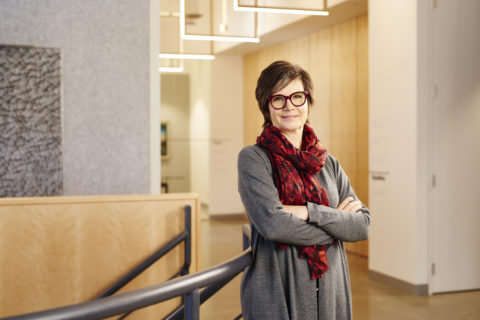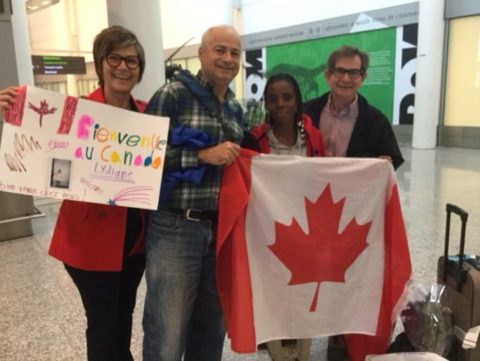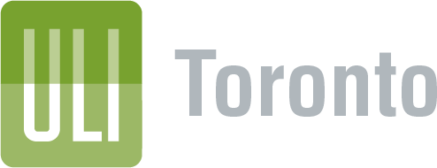Thoughts on Life Transitions and Mentorship – Kim Beckman
February 28, 2022

Kim Beckman – WLI Toronto Committee Co-Chair and Senior Partner, Davies Howe LLP
This blog post is everything that would have, in the early stages of my career, been unfathomable: publicly sharing my personal experiences as a professional during a time of my evolution, much less the key drivers for that evolution. As I move into the active stage of planning for a transition to another life stage, I have become more inquisitive and engaged in both mentoring younger people and learning about areas within the land development world that interest me but, until quite recently, I did not commit time and energy to.
As we continue our slow emergence from the pandemic, I am struck by how our isolation has allowed us to share more openly in our professional worlds about our mental health and how we want to, as individuals and as collectives, reframe what the future will look like. In telling our stories, we allow ourselves to be truly seen. With the luxury of an established career, my primary focus is no longer on how an open public discussion could negatively impact my professional trajectory. In telling my story, I am hopeful that it will ease the way for others to openly share their stories in a more genuine way. I also hope that it helps to decouple the link between professional success and personal openness.
Over the past 30+ years, I have practiced as a lawyer in the land development arena (virtually all of it at the same firm). As my career evolved, I experienced a number of personal transitions that I pushed through by force of will. From giving birth to my first child in the middle of my articling year to the untimely death of my first husband to a child’s major illness, I kept my head down and kept going. It would not have occurred to me at any of those points in time to pause or take any substantial period of time away, be it maternity leave (which I did not take with either of my birth children), bereavement leave or otherwise. While my mantra was that the mortgage had to be paid and that I needed to show strength to my children, colleagues and clients, I recognize that my professional identity is also a security blanket that informs virtually every aspect of my life. What I do for a living has deeply defined who I am and the value I place on my life.
My stoicism and drive did not do any favours to the women and men who came after me. I set my bar at a place that I would not recommend to anyone, nor would I impose it as an employer. In hindsight, I see that my worth to my colleagues and my clients would not have suffered in any appreciable way by my taking the time and space required to move through the challenging phases of my life. Others who pushed for a shift in the acceptance and support of parental leave, part-time work during key child-rearing years and taking time away from work to truly recharge have done us all a great favour. My commitment now is to support younger people in finding a way to pursue that elusive goal for many of us – balance. While many in the latter stages of our careers grouse about a lack of commitment by those following us, I see my role as translating what can sometimes feel like two languages. Work has to get done but a more collective approach to how that is achieved is at the heart of the change we are all experiencing in our professional lives. Career growth can happen with less personal sacrifice and the stress-induced toll that it exacts by frankly and openly discussing how paths to success, and even what success means, are re-examined and forged in a different way.
Virtually, all of us operate in work and social media worlds that place a high value on the cult of busyness, executed flawlessly. It takes courage to question our underlying assumptions and values. To stand up, even today as a white, privileged, and experienced professional, to identify personal needs or priorities that are not in service of an “all in” commitment to my professional role and identity, is daunting.
My professional career evolved without formal mentorship but it was filled with strong allies who were both women and men. Few formal mentorship programs existed for women during the early stages of my professional career but, honestly, I would not have sought them out. Perhaps it was generational messaging, but I firmly believed that it was on me to identify and implement the steps required to build my career.
The prevalence of programs such as the ULI mentorship program today is a huge step forward. Those programs actively seek participation by women and people from other equity-seeking groups to support each participant’s identification of personal and professional objectives, as well as pathways to achieving those goals.
As I have embarked on a transition from a full-time professional life to an as-yet-to-be-defined second act, I have identified some key drivers for my evolution that resonate in my ongoing conversations with people in the early and middle stages of their careers. In no particular order, here are my key takeaways:

Welcoming a new Canadian
1. Service to something beyond self and our professional roles is at the core of meaningful change.
While self-examination has its place, perspective is best achieved by acting in service to something or someone else without it being tied directly to professional success. My time on non-profit boards, providing direct support to refugees who have sought safety and better lives in Canada and, most recently, my tenure as the co-chair for the Women’s Leadership Initiative of ULI Toronto, have all provided me with the invaluable opportunity to reframe my perspectives. These experiences have also brought new meaning to my life and have exposed me to brave individuals, inspiring leaders and changemakers. All of this has informed my thinking about my remaining professional life and second act. While in the earlier stages of my career I thought that these commitments were luxuries that my time did not allow given multiple demands, I find this to be a key driver for younger people. It is also an important cornerstone for employers to both support and embrace as it is a key element of an organization’s culture and supporting individuals to find a workable balance between their personal and professional lives.
2.We all need a tribe.
Acting in common cause with people who are committed to learning and growth is critical. I have sought out a number of younger women and men who are actively questioning their personal and professional priorities in a values-based and forthright way. This is sometimes through a formal mentorship role but, at other times, it takes place at meet-ups over cups of coffee or glasses of wine. I gain as much strength from younger people who are in earlier career stages who show up as fully human and vulnerable as I do from age-similar peers. Members of my tribe have to be prepared to share both strengths and uncertainties. I have been taken aback, again and again, about how similar the human experience is during times of pronounced change, regardless of our life stage. I also have to be prepared to be open about how little I may know and to be an imperfect novice. That means approaching people who are taking on challenges that I find fascinating but know little about. I have to be prepared to ask, to inquire and to really listen.
3. My tribe has to include people who don’t look like me or share my experiences.
I constantly need to question how the lens of my privilege and experiences have excluded my awareness of struggles experienced by equity-seeking groups, in particular. I need to be prepared to take on conversations that are uncomfortable and to be sure that my feedback loop isn’t an echo chamber. To avoid this, I need a tribe that is ever-evolving and includes people who don’t look like me or who have had different life experiences. None of us can know what we don’t know. Expanding our circles can be personally uncomfortable as it requires us to step outside our own zones of familiarity. I have found that this is best achieved by starting with issues that resonate with me. We all have an innate passion for something in the world around us and in virtually all cases, someone else has already taken an action or organized to address it. At WLI, we have created a partnerships subcommittee that is working with individuals and groups who are committed to redressing multiple issues such as the support of cultural centres serving marginalized communities, expanding employment opportunities for immigrant women, among many others. Researching and reaching out are key. Finding someone, anyone, who is already engaged in volunteer work of any kind can provide a gateway to identifying a service opportunity that is both meaningful and achievable given other life commitments.
4. Everyone has a story and a yearning.
All I have to do is ask and take the time to listen.
5. Allies are everywhere.
The courage is in asking for help and guidance. We all know who we admire and can learn from. Those people are the pathways to either supporting us directly or linking us to someone else who can. Expressing gratitude for the support shown is how networks are born.
6. If I want something to change, that’s on me.
There is help and support out there for each of us – more than we can imagine – but the underlying choices and initiatives are ours to take. My work with WLI has been an invaluable opportunity to discuss where change is happening, and needs to happen, within the land development world and beyond. Programming that expands on topics of equity and inclusion, in particular, opens up opportunities for discussions that reverberate within individual organizations as well as ongoing public and private initiatives. The shifting of perspective can be daunting but engaging with others who are prepared to entertain the evolution of our personal and organizational thinking and action has enriched my life and expanded my network in unexpected and exciting ways.
I wish all reading this blog success and courage in your personal and professional journeys. May you find your allies, explore your passions and prosper in an engaging and evolving career – at whatever stage you find yourself in.
Please join the Women’s Leadership Initiative on International Women’s Day, March 8, 2022, for a noon session entitled “Allyship in Action: The Business of Equity in Housing” that will explore business models for the delivery of affordable housing. Registration particulars are here. This session will be held in memory of Nancy Singer, a WLI Champion who we lost far too soon. Nancy lived her passion through a career-long commitment to social housing. She lived all that I have attempted to capture in this blog post.
Also, you can read the WLI blog here – women from WLI share a piece of their career journey through monthly blog posts.
